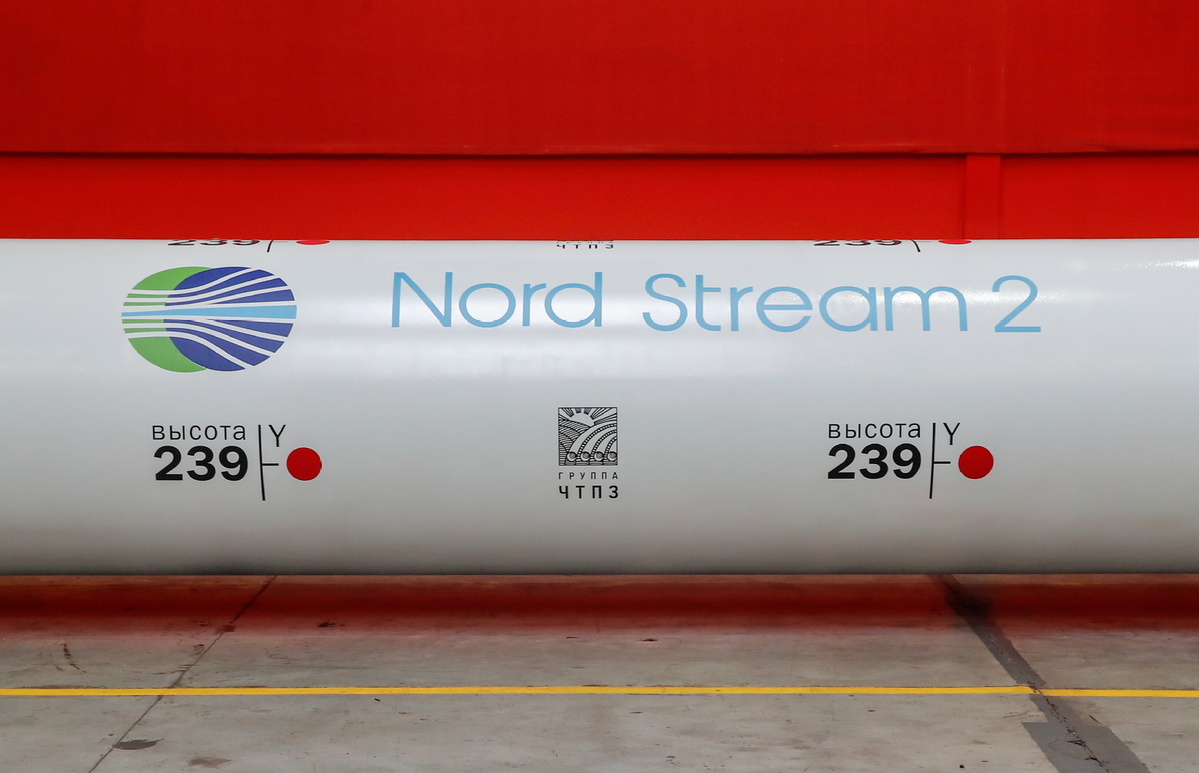Europeans in a bind on energy needs
By CHEN YINGQUN | China Daily | Updated: 2021-11-04 09:30

Long-term strategy to ensure supplies proves elusive amid soaring prices
European countries should act quickly to help the most vulnerable consumers deal with soaring energy prices, but have a job ahead of them in working out long-term strategies to ensure energy security, analysts said.
European gas prices have hit record highs this autumn and the price hikes are expected to last, due to increased global demand for energy.
He Yun, an associate professor at the School of Public Administration at Hunan University in Changsha, said the global energy giants had slashed their investments last year because of the pandemic. That meant supplies dropped to below pre-pandemic levels just when industrial output began surging in line with the recovery of economies around the world, He said.
The academic pointed out that Europe had a severe winter last year and Asia an unusually hot summer. The spikes in demand, either for heating or cooling, almost depleted the energy stockpiles of many countries.
"Unusual weather has also reduced the amount of power generated from wind in northern Europe, causing further strains on the energy system", He said. Aside from the global shortage in energy supplies, a number of other factors have contributed to the strains in the European energy markets.
The academic cited political interference by the United States in Europe, and the related geopolitical concerns of some European countries toward the Nord Stream 2 gas pipeline project. These issues have delayed the licensing process for the project, which will pipe Russian gas to markets in Europe.
The delays have caused tensions between the European Union and Russia, which is already a major gas supplier to nations in the bloc.
The academic also cited the EU's Green Deal, a strategy aimed at combating climate change, which has boosted carbon prices. Investments in fossil-fuel energy sources have now become riskier economically and politically. And this is especially true for coal, He said.
"There has been no consensus on nuclear power, which could be one of the ways to increase energy supply without having to compromise on the EU's carbon goal," she said.
EU ministers held talks last week focused on energy, but deep differences between the member countries were evident. While most member states agree on the need for short-term measures, such as tax cuts and state aid, to bring relief to households and businesses from the soaring energy prices, they differ on policies for the long term.
Divisions in EU
Countries such as France and Spain are calling for a structural reform of the bloc's energy market; others, Germany among them, believe the crisis is temporary and does not require radical market changes.
He Yun said that the licensing of the Nord Stream 2 project could help increase gas imports from Russia, but European countries may find it hard to reach an agreement internally. Increasing investment in renewable energy could improve Europe's energy security in the long run.
"But Europe still has a long way to go to reach energy security, as it depends on imports of energy from other countries and its renewable energy is unable to meet its demand," she said.
Chen Fengying, a senior researcher on the world economy at the China Institutes of Contemporary International Relations, said last year's extremely low crude oil prices-at around $30 a barrel-have left energy companies wary about increasing production.
"The global trend is for energy companies to switch to renewable energy, so many of them are investing more in renewable energy rather than in the fossil-fuels sectors," she said.
While economies recover from the impact of the pandemic, the demand for energy from consumers and businesses has been rising steadily. This has created the conditions for the spike in energy prices.
Chen said that, given Europe's reliance on energy imports, governments could undertake immediate measures to mitigate the pressures from consumers and businesses. "But up till now, they haven't found effective solutions for achieving a long-term European energy security."
























